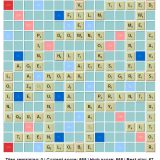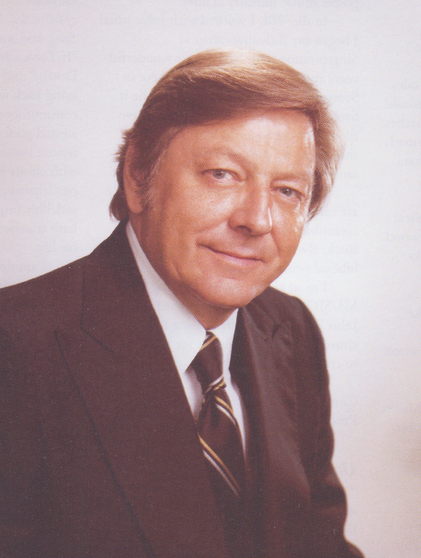President’s Day
I don’t recall ever having a holiday for President’s Day when growing up…
Oh well, they sure do now.
In honor of President’s day, I thought to post some quotes by Abraham Lincoln; quotes on various subjects at a variety of venues.

AGRICULTURE
“Every blade of grass is a study; and to produce two, where there was but one, is both a profit and a pleasure.”
–From the September 30, 1859 Address before the Wisconsin State Agricultural Society
“This leads to the further reflection, that no other human occupation opens so wide a field for the profitable and agreeable combination of labor with cultivated thought, as agriculture. I know of nothing so pleasant to the mind, as the discovery of anything which is at once new and valuable — nothing which so lightens and sweetens toil, as the hopeful pursuit of such discovery. And how vast, and how varied a field is agriculture, for such discovery. The mind, already trained to thought, in the country school, or higher school, cannot fail to find there an exhaustless source of profitable enjoyment.”
–From the September 30, 1859 Address before the Wisconsin State Agricultural Society
AMBITION
“Every man is said to have his peculiar ambition. Whether it be true or not, I can say for one that I have no other so great as that of being truly esteemed of my fellow men, by rendering myself worthy of their esteem. How far I shall succeed in gratifying this ambition, is yet to be developed.”
–From the March 9, 1832 First Political Announcement
“You are ambitious, which, within reasonable bounds, does good rather than harm.”
–From the January 26, 1863 Letter to Joseph Hooker
ANARCHY
“There is no grievance that is a fit object of redress by mob law.”
–From the January 27, 1838 Lyceum Address
“Plainly, the central idea of secession, is the essence of anarchy.”
–From the March 4, 1861 Inaugural Address
APPEARANCE
“If any personal description of me is thought desirable, it may be said, I am, in height, six feet, four inches, nearly; lean in flesh, weighing on an average one hundred and eighty pounds; dark complexion, with coarse black hair, and grey eyes — no other marks or brands recollected.”
–From the December 20, 1859 Autobiography
COLONIZATION
“If as the friends of colonization hope, the present and coming generations of our countrymen shall by any means, succeed in freeing our land from the dangerous presence of slavery; and, at the same time, in restoring a captive people to their long-lost father-land, with bright prospects for the future; and this too, so gradually, that neither races nor individuals shall have suffered by the change, it will indeed be a glorious consummation.”
–From the July 6, 1852 Eulogy on Henry Clay
COMPASSION
“With malice toward none; with charity for all; with firmness in the right, as God gives us to see the right, let us strive on to finish the work we are in; to bind up the nation’s wounds; to care for him who shall have borne the battle, and for his widow, and his orphan…”
–From the March 4, 1865 Inaugural Address
DANGER
“At what point then is the approach of danger to be expected? I answer, if it ever reach us, it must spring up amongst us. It cannot come from abroad. If destruction be our lot, we must ourselves be its author and finisher. As a nation of freemen, we must live through all time, or die by suicide.”
–From the January 27, 1838 Lyceum Address
DECLARATION OF INDEPENDENCE
“I have never had a feeling politically that did not spring from the sentiments embodied in the Declaration of Independence.”
–From the February 22, 1861 Address in Independence Hall
“Four score and seven years ago our fathers brought forth on this continent, a new nation, conceived in Liberty, and dedicated to the proposition that all men are created equal.”
–From the November 19, 1863 Gettysburg Address
DESPOTISM
“When it comes to this I should prefer emigrating to some country where they make no pretence of loving liberty — to Russia, for instance, where despotism can be taken pure, and without the base alloy of hypocracy [sic].”
–From the August 24, 1855 Letter to Joshua Speed
DETERMINATION
“If you are resolutely determined to make a lawyer of yourself, the thing is more than half done already.”
–From the November 5, 1855 Letter to Isham Reavis
“I know not how to aid you, save in the assurance of one of mature age, and much severe experience, that you can not fail, if you resolutely determine, that you will not.”
–From the July 22, 1860 Letter to George Latham
DIFFICULTIES
“The dogmas of the quiet past, are inadequate to the stormy present. The occasion is piled high with difficulty, and we must rise — with the occasion. As our case is new, so we must think anew, and act anew. We must disentrall ourselves, and then we shall save our country.”
–From the December 1, 1862 Message to Congress
DILIGENCE
“The leading rule for the lawyer, as for the man of every other calling, is diligence. Leave nothing for to-morrow which can be done to-day.”
–From the July 1, 1850 [?] Notes for a Law Lecture
DUTY
“Neither let us be slandered from our duty by false accusations against us, nor frightened from it by menaces of destruction to the Government nor of dungeons to ourselves. LET US HAVE FAITH THAT RIGHT MAKES MIGHT, AND IN THAT FAITH, LET US, TO THE END, DARE TO DO OUR DUTY AS WE UNDERSTAND IT.”
–From the February 27, 1860 Cooper Union Address
EDUCATION
“Upon the subject of education, not presuming to dictate any plan or system respecting it, I can only say that I view it as the most important subject which we as a people can be engaged in.”
–From the March 9, 1832 First Political Announcement
“Mr. Clay’s lack of a more perfect early education, however it may be regretted generally, teaches at least one profitable lesson; it teaches that in this country, one can scarcely be so poor, but that, if he will, he can acquire sufficient education to get through the world respectably.”
–From the July 6, 1852 Eulogy on Henry Clay
“A capacity, and taste, for reading, gives access to whatever has already been discovered by others. It is the key, or one of the keys, to the already solved problems. And not only so. It gives a relish, and facility, for successfully pursuing the [yet] unsolved ones.”
–From the September 30, 1859 Address before the Wisconsin State Agricultural Society
“The old general rule was that educated people did not perform manual labor. They managed to eat their bread, leaving the toil of producing it to the uneducated. This was not an insupportable evil to the working bees, so long as the class of drones remained very small. But now, especially in these free States, nearly all are educated–quite too nearly all, to leave the labor of the uneducated, in any wise adequate to the support of the whole. It follows from this that henceforth educated people must labor. Otherwise, education itself would become a positive and intolerable evil. No country can sustain, in idleness, more than a small percentage of its numbers. The great majority must labor at something productive.”
–From the September 30, 1859 Address before the Wisconsin State Agricultural Society
EMANCIPATION PROCLAMATION
“And by virtue of the power, and for the purpose aforesaid, I do order and declare that all persons held as slaves within said designated States, and parts of States, are, and henceforward shall be free; and that the Executive government of the United States, including the military and naval authorities thereof, will recognize and maintain the freedom of said persons.”
–From the January 1, 1863 Final Emancipation Proclamation
“You dislike the emancipation proclamation; and, perhaps, would have it retracted. You say it is unconstitutional — I think differently.”
–From the August 26, 1863 Letter to James Conkling
“But the proclamation, as law, either is valid, or is not valid. If it is not valid, it needs no retraction. If it is valid, it can not be retracted, any more than the dead can be brought to life.”
–From the August 26, 1863 Letter to James Conkling
FREEDOM
“Those who deny freedom to others, deserve it not for themselves; and, under a just God, can not long retain it.”
–From the April 6, 1859 Letter to Henry Pierce
“I have here stated my purpose according to my view of official duty; and I intend no modification of my oft-expressed personal wish that all men everywhere could be free.”
–From the August 22, 1862 Letter to Horace Greeley
“In giving freedom to the slave, we assure freedom to the free — honorable alike in what we give, and what we preserve. We shall nobly save, or meanly lose, the last best, hope of earth.”
–From the December 1, 1862 Message to Congress
“We have, as all will agree, a free Government, where every man has a right to be equal with every other man. In this great struggle, this form of Government and every form of human right is endangered if our enemies succeed.”
–From the August 22, 1864 Speech to the One Hundred Sixty-fourth Ohio Regiment
GENIUS
“Towering genius distains a beaten path. It seeks regions hitherto unexplored.”
–From the January 27, 1838 Lyceum Address
GRIEF
“In the untimely loss of your noble son, our affliction here, is scarcely less than your own. So much of promised usefulness to one’s country, and of bright hopes for one’s self and friends, have rarely been so suddenly dashed, as in his fall.”
–From the May 25, 1861 Letter to Ephraim D. and Phoebe Ellsworth
“In this sad world of ours, sorrow comes to all; and, to the young, it comes with bitterest agony, because it takes them unawares.”
–From the December 23, 1862 Letter to Fanny McCullough
“I pray that our Heavenly Father may assuage the anguish of your bereavement, and leave you only the cherished memory of the loved and lost, and the solemn pride that must be yours to have laid so costly a sacrifice upon the altar of freedom.”
–From the Nov. 21, 1864 Letter to Lydia Bixby
HONESTY
“I believe it is an established maxim in morals that he who makes an assertion without knowing whether it is true or false, is guilty of falsehood; and the accidental truth of the assertion, does not justify or excuse him.”
–From the August 11, 1846 Letter to Allen N. Ford
“Let no young man choosing the law for a calling for a moment yield to the popular belief — resolve to be honest at all events; and if in your own judgment you cannot be an honest lawyer, resolve to be honest without being a lawyer.”
–From the July 1, 1850 [?] Notes for a Law Lecture
INSURRECTION
“John Brown’s effort was peculiar. It was not a slave insurrection. It was an attempt by white men to get up a revolt among slaves, in which the slaves refused to participate.”
–From the February 27, 1860 Cooper Union Address
LABOR
“Every man is proud of what he does well; and no man is proud of what he does not do well. With the former, his heart is in his work; and he will do twice as much of it with less fatigue. The latter performs a little imperfectly, looks at it in disgust, turns from it, and imagines himself exceedingly tired. The little he has done, comes to nothing, for want of finishing.”
–From the September 30, 1859 Address before the Wisconsin State Agricultural Society
“By the ‘mud-sill’ theory it is assumed that labor and education are incompatible; and any practical combination of them impossible. According to that theory, a blind horse upon a tread-mill, is a perfect illustration of what a laborer should be — all the better for being blind, that he could not tread out of place, or kick understandingly. According to that theory, the education of laborers, is not only useless, but pernicious, and dangerous. In fact, it is, in some sort, deemed a misfortune that laborers should have heads at all.”
–From the September 30, 1859 Address before the Wisconsin State Agricultural Society
LAWS
“Let every American, every lover of liberty, every well wisher to his posterity, swear by the blood of the Revolution, never to violate in the least particular, the laws of the country; and never to tolerate their violation by others.”
–From the January 27, 1838 Lyceum Address
“Let reverence for the laws, be breathed by every American mother, to the lisping babe, that prattles on her lap — let it be taught in schools, in seminaries, and in colleges; let it be written in Primers, spelling books, and in Almanacs; — let it be preached from the pulpit, proclaimed in legislative halls, and enforced in courts of justice. And, in short, let it become the political religion of the nation; and let the old and the young, the rich and the poor, the grave and the gay, of all sexes and tongues, and colors and conditions, sacrifice unceasingly upon its altars.”
–From the January 27, 1838 Lyceum Address
LAWYERS
“Discourage litigation. Persuade your neighbors to compromise whenever you can. Point out to them how the nominal winner is often a real loser — in fees, expenses, and waste of time. As a peacemaker the lawyer has a superior opportunity of being a good man. There will still be business enough.”
–From the July 1, 1850 [?] Notes for a Law Lecture
“Never stir up litigation. A worse man can scarcely be found than one who does this. Who can be more nearly a fiend than he who habitually overhauls the register of deeds in search of defects in titles, whereon to stir up strife, and put money in his pocket?”
–From the July 1, 1850 [?] Notes for a Law Lecture
“Let no young man choosing the law for a calling for a moment yield to the popular belief — resolve to be honest at all events; and if in your own judgment you cannot be an honest lawyer, resolve to be honest without being a lawyer.”
–From the July 1, 1850 [?] Notes for a Law Lecture
PEACE
“The man does not live who is more devoted to peace than I am. None who would do more to preserve it.”
–From the February 21, 1861 Address to the New Jersey General Assembly
“Peace does not appear so distant as it did. I hope it will come soon, and come to stay; and so come as to be worth the keeping in all future time.”
–From the August 26, 1863 Letter to James Conkling
PERSUASION
” When the conduct of men is designed to be influenced, persuasion, kind, unassuming persuasion, should ever be adopted. It is an old and a true maxim, that a ‘drop of honey catches more flies than a gallon of gall.'”
–From the February 22, 1842 Temperance Address
POSTERITY
“It is not merely for to-day, but for all time to come that we should perpetuate for our children’s children this great and free government, which we have enjoyed all our lives.”
–From the August 22, 1864 Speech to the One Hundred Sixty-sixth Ohio Regiment
“There is more involved in this contest than is realized by every one. There is involved in this struggle the question whether your children and my children shall enjoy the privileges we have enjoyed.”
–From the August 22, 1864 Speech to the One Hundred Sixty-fourth Ohio Regiment
PRAYER
“To His care commending you, as I hope in your prayers you will commend me, I bid you an affectionate farewell.”
–From the February 11, 1861 Farewell Address
“I am much indebted to the good Christian people of the country for their constant prayers and consolations; and to no one of them, more than to yourself.”
–From the September 4, 1864 Letter to Eliza Gurney
“Both read the same Bible, and pray to the same God; and each invokes His aid against the other. It may seem strange that any men should dare to ask a just God’s assistance in wringing their bread from the sweat of other men’s faces; but let us judge not that we be not judged. The prayers of both could not be answered; that of neither has been answered fully.”
–From the March 4, 1865 Inaugural Address
PROVIDENCE/RELIGION
“That I am not a member of any Christian Church, is true; but I have never denied the truth of the Scriptures; and I have never spoken with intentional disrespect of religion in general, or any denomination of Christians in particular.”
–From the July 31, 1846 Handbill Replying to Charges of Infidelity
“I do not think I could myself, be brought to support a man for office, whom I knew to be an open enemy of, and scoffer at, religion.”
–From the July 31, 1846 Handbill Replying to Charges of Infidelity
“The will of God prevails. In great contests each party claims to act in accordance with the will of God. Both may be, and one must be, wrong.”
–From the September 1862 Meditation on the Divine Will
“I am very glad indeed to see you to-night, and yet I will not say I thank you for this call, but I do most sincerely thank Almighty God for the occasion on which you have called.”
–From the July 7, 1864 Response to a Serenade
“If God now wills the removal of a great wrong, and wills also that we of the North as well as you of the South, shall pay fairly for our complicity in that wrong, impartial history will find therein new cause to attest and revere the justice and goodness of God.”
–From the April 4, 1864 Letter to Albert Hodges
“We hoped for a happy termination of this terrible war long before this; but God knows best, and has ruled otherwise. We shall yet acknowledge His wisdom and our own error therein.”
–From the September 4, 1864 Letter to Eliza Gurney
REASON
“Passion has helped us; but can do so no more. It will in future be our enemy. Reason, cold, calculating, unimpassioned reason, must furnish all the materials for our future support and defence.”
–From the February 22, 1842 Temperance Address
“Happy day, when, all appetites controlled, all poisons subdued, all matter subjected, mind, all conquering mind, shall live and move the monarch of the world. Glorious consummation! Hail fall of Fury! Reign of Reason, all hail!”
–From the February 22, 1842 Temperance Address
RESPONSIBILITY
“Fellow-citizens, we cannot escape history. We of this Congress and this administration, will be remembered in spite of ourselves. No personal significance, or insignificance, can spare one or another of us. The fiery trial through which we pass, will light us down, in honor or dishonor, to the latest generation.”
–From the December 1, 1862 Message to Congress
“I freely acknowledge myself the servant of the people, according to the bond of service — the United States Constitution; and that, as such, I am responsible to them.”
–From the August 26, 1863 Letter to James Conkling
SLAVERY
“The Autocrat of all the Russias will resign his crown, and proclaim his subjects free republicans sooner than will our American masters voluntarily give up their slaves.”
–From the August 15, 1855 Letter to George Robertson
“You know I dislike slavery; and you fully admit the abstract wrong of it.”
–From the August 24, 1855 Letter to Joshua Speed
“The slave-breeders and slave-traders, are a small, odious and detested class, among you; and yet in politics, they dictate the course of all of you, and are as completely your masters, as you are the master of your own negroes.”
–From the August 24, 1855 Letter to Joshua Speed
“I believe this Government cannot endure, permanently half slave and half free.”
–From the June 16, 1858 House Divided Speech
“This is a world of compensations; and he who would be no slave, must consent to have no slave.”
–From the April 6, 1859 Letter to Henry Pierce
“One section of our country believes slavery is right, and ought to be extended, while the other believes it is wrong, and ought not to be extended.”
–From the March 4, 1861 Inaugural Address
“I am naturally anti-slavery. If slavery is not wrong, nothing is wrong. I can not remember when I did not so think, and feel. And yet I have never understood that the Presidency conferred upon me an unrestricted right to act officially upon this judgment and feeling.”
–From the April 4, 1864 Letter to Albert Hodges
“One eighth of the whole population were colored slaves, not distributed generally over the Union, but localized in the Southern part of it. These slaves constituted a peculiar and powerful interest. All knew that this interest was, somehow, the cause of the war.”
–From the March 4, 1865 Inaugural Address
SOLDIERS
“Then came the Black-Hawk war; and I was elected a Captain of Volunteers — a success which gave me more pleasure than any I have had since.”
–From the December 20, 1859 Autobiography
“I would like to speak in terms of praise due to the many brave officers and soldiers who have fought in the cause of the war.”
–From the July 7, 1863 Response to a Serenade
“You say you will not fight to free negroes. Some of them seem willing to fight for you; but, no matter. Fight you, then exclusively to save the Union.”
–From the August 26, 1863 Letter to James Conkling
“And then, there will be some black men who can remember that, with silent tongue, and clenched teeth, and steady eye, and well-poised bayonnet, they have helped mankind on to this great consummation…”
–From the August 26, 1863 Letter to James Conkling
“I am greatly obliged to you, and to all who have come forward at the call of their country.”
–From the August 22, 1864 Speech to the One Hundred Sixty-fourth Ohio Regiment
UNION
“I do not expect the Union to be dissolved — I do not expect the house to fall — but I do expect it will cease to be divided.”
–From the June 16, 1858 House Divided Speech
“I hold, that in contemplation of universal law, and of the Constitution, the Union of these States is perpetual.”
–From the March 4, 1861 Inaugural Address
“I therefore consider that in view of the Constitution and the laws, the Union is unbroken; and to the extent of my ability I shall take care, as the Constitution itself expressly enjoins upon me, that the laws of the Union be faithfully executed in all the States.”
–From the March 4, 1861 Inaugural Address
“The Union is much older than the Constitution. It was formed in fact, by the Articles of Association in 1774. It was matured and continued by the Declaration of Independence in 1776.”
–From the March 4, 1861 Inaugural Address
“The mystic chords of memory, stretching from every battle-field, and patriot grave, to every living heart and hearth-stone, all over this broad land, will yet swell the chorus of the Union, when again touched, as surely they will be, by the better angels of our nature.”
–From the March 4, 1861 Inaugural Address
“I would save the Union. I would save it the shortest way under the Constitution. The sooner the national authority can be restored; the nearer the Union will be ‘the Union as it was.'”
–From the August 22, 1862 Letter to Horace Greeley
WAR
“Now we are engaged in a great civil war, testing whether that nation, or any nation so conceived and so dedicated, can long endure.”
–From the November 19, 1863 Gettysburg Address
“Both parties deprecated war; but one of them would make war rather than let the nation survive; and the other would accept war rather than let it perish. And the war came …. Fondly do we hope — fervently do we pray — that this mighty scourge of war may speedily pass away.”
–From the March 4, 1865 Inaugural Address














“A Penny Saved is a Penny Earned”— No, wait, I think Ben Franklin said that!